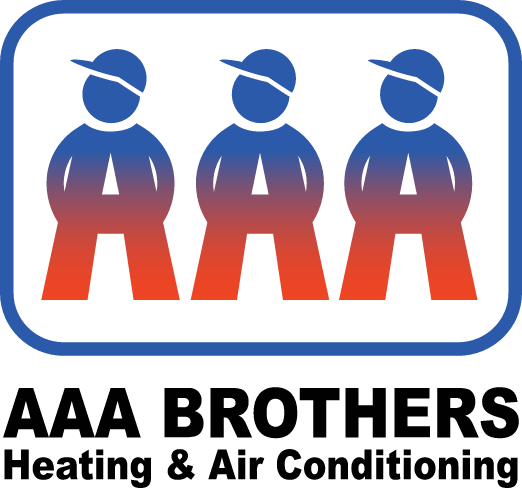Keeping your Huntingdon Valley home and office heated during the winter is important. At the same time, you want the most energy-efficient heating option available. Both furnaces and boilers are forced-air heating systems. They work to maintain a uniform temperature in your house or office by heating the air in a centralized location and then distributing that air through your building via a series of ductwork. The following are some factors to consider when determining which system is right for you.
Furnace Basics
A central gas heating system creates a cycle that heats cooler air within a home. Initially, burning propane or natural gas in the furnace’s burner generates heat. This heat then travels through a heat exchanger, elevating its temperature. Subsequently, air from the house’s ductwork is propelled across the heat exchanger, warming the air. The furnace’s blower forcefully propels the heated air into the supply ductwork, effectively distributing it throughout the residence.
Furnace Pros and Cons
Price
Furnaces are more commonly used in the United States than boilers. They’re less expensive, with the average furnace costing around $3,500. That said, boilers operate more efficiently, meaning they’ll cost less to operate in the long run.
No Freezing Hazard
Since a furnace doesn’t have water inside the system, there’s nothing to freeze if the power goes out. If the power goes out and you use a boiler to heat the home, the pipes can freeze and burst if exposed to freezing temperatures for too long.
Ease of Repair and Installation
Technicians can usually install a furnace in a couple of hours. On the other hand, it can take days to install a boiler. Furnace repair is usually easier and less expensive. That being said, it’s important to contact the technicians at AAA Brothers Heating & Air Conditioning to schedule routine maintenance of your furnace. This will extend its lifespan and minimize repairs.
Furnace Cons
Reduced Efficiency
A furnace uses fuel faster than a boiler because it’s less efficient to heat air than water. This can lead to an increase in energy costs.
Noise
Modern furnaces are designed to run quieter than their predecessors. However, the furnace blows air through vents, which can still create noticeable noise. This is especially true when the unit activates or when it deactivates.
Inconsistent Heating
Heat delivered via a forced-air system isn’t always as consistent as heat provided by a boiler. Some parts of the home, depending on the relation to the vents and other factors, can be hotter or colder than others. Furnaces also produce dry air, which could impact the respiratory systems of some people living in your household.
Boiler Basics
This heating system works by heating water and sending it through pipes and radiators using boilers fueled by gas or oil. Heated water or steam moves through the pipes to reach radiators in different parts of your house, releasing warmth into the rooms. Once it cools down, the water returns to the boiler, restarting the process to maintain a consistent heat supply. This cycle continues to ensure your home or office stays warm and comfortable.
Boiler Pros
Consistent Heat Flow
Boilers give steady heat. They evenly distribute the heat throughout the home. You can add additional heating zones as well. A boiler system improves the control of where the heat gets distributed in a building.
Quieter
Boilers heat water instead of air, making them quieter than a furnace. If you have a boiler making a lot of noise, it could indicate that it needs maintenance or repair.
Reduced Maintenance
All appliances require maintenance. However, since a boiler doesn’t have filters to clean or change, it’s a low-maintenance part of an HVAC system. Having your boiler checked every year by a trained technician is a good idea.
Improved Air Quality
Boilers are a good heating option if you or someone in your family suffers from allergies. Since the system uses water to heat the air, it doesn’t harbor dust and allergens like a furnace.
Boiler Cons
Increased Initial Expense
A boiler’s upfront cost can be much more expensive than a furnace. High-efficiency units can run up to $10,000, including installation. However, hot water boilers are more efficient than a furnace, meaning that they’ll cost less to operate over time.
Slower Reaction Times
A boiler will take longer to react to a change to the thermostat. If you activate a boiler or increase or decrease the temperature, it will take longer for the boiler to kick on, shut off, or change temperature.
Potential Leak Hazard
A leak in a boiler system can lead to expensive property damage. The best way to minimize leaks is to have your boiler inspected by a trained professional each year.
The Best HVAC Team in Huntingdon Valley
AAA Brothers Heating & Air Conditioning has served our area’s residents for over three decades. We’re proud of our A+ rating from the Better Business Bureau and the fact that we’ve been recognized with the Super Service Award from Angi eight years in a row.
Our services include HVAC installation, maintenance, and repair. We also install water heaters and boilers, perform indoor air quality tests, and install heat pumps and home generators. Contact AAA Brothers Heating & Air Conditioning today to work with a company that prioritizes the well-being of our customers.



